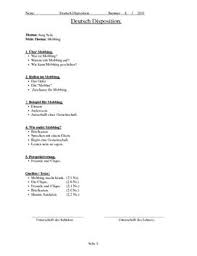disposition
英 [ˌdɪs.pəˈzɪʃ.ən]
美 [ˌdɪs.pəˈzɪʃ.ən]
- n. 处置;[心理] 性情;[军] 部署;倾向
使用频率:

记忆方法
1. dis- "apart" + posit- + -ion.
2. 含义:put things apart, put things to their different positions (directions), put in order, arrange, distribute.
3. 也就是把各种事情、东西放置到他们各自不同的位置上。
4. References to "temperament" are from astrological use of the word for "position of a planet as a determining influence".
2. 含义:put things apart, put things to their different positions (directions), put in order, arrange, distribute.
3. 也就是把各种事情、东西放置到他们各自不同的位置上。
4. References to "temperament" are from astrological use of the word for "position of a planet as a determining influence".
英语词源
- disposition (n.)
- late 14c., "ordering, management," also "tendency of mind," from Old French disposicion (12c.) "arrangement, order; mood, state of mind," from Latin dispositionem (nominative dispositio) "arrangement, management," noun of action from past participle stem of disponere "to put in order, arrange" (see dispose). References to "temperament" (late 14c. in English) are from astrological use of the word for "position of a planet as a determining influence."
权威例句
- 1. He was a nice lad — bright and with a sunny disposition.
- 他是个不错的小伙子——聪明伶俐而且性格开朗。
- 2. Judge Stacks was appointed to oversee the disposition of funds.
- 斯塔克斯法官被指定监督资金的分配。
- 3. This has given him a disposition to consider our traditions critically.
- 这使他倾向以批判眼光看待我们的传统。
- 4. They show no disposition to improvise or to take risks.
- 他们不愿意临时凑合或冒险。
- 5. to have a cheerful disposition
- 性情开朗
